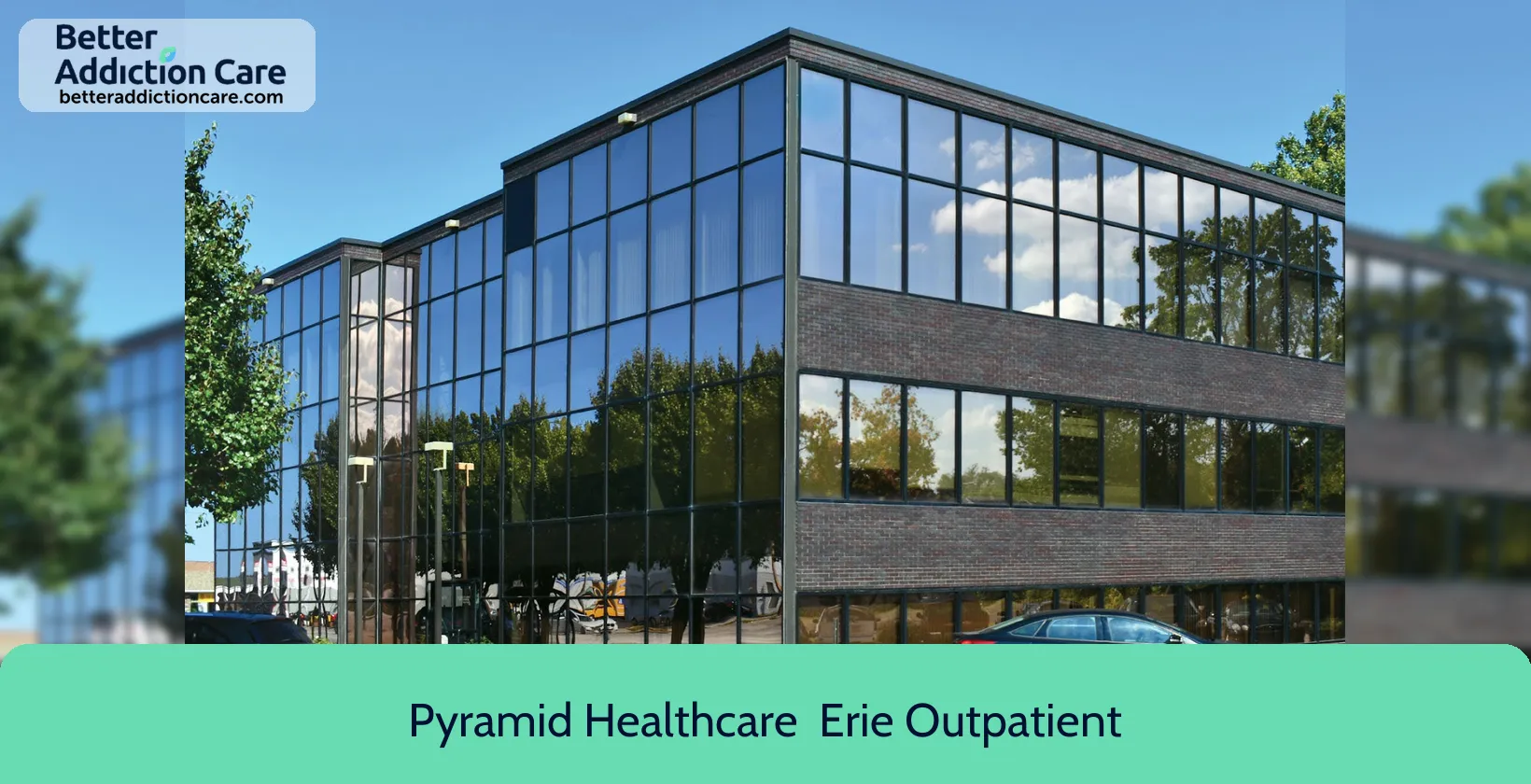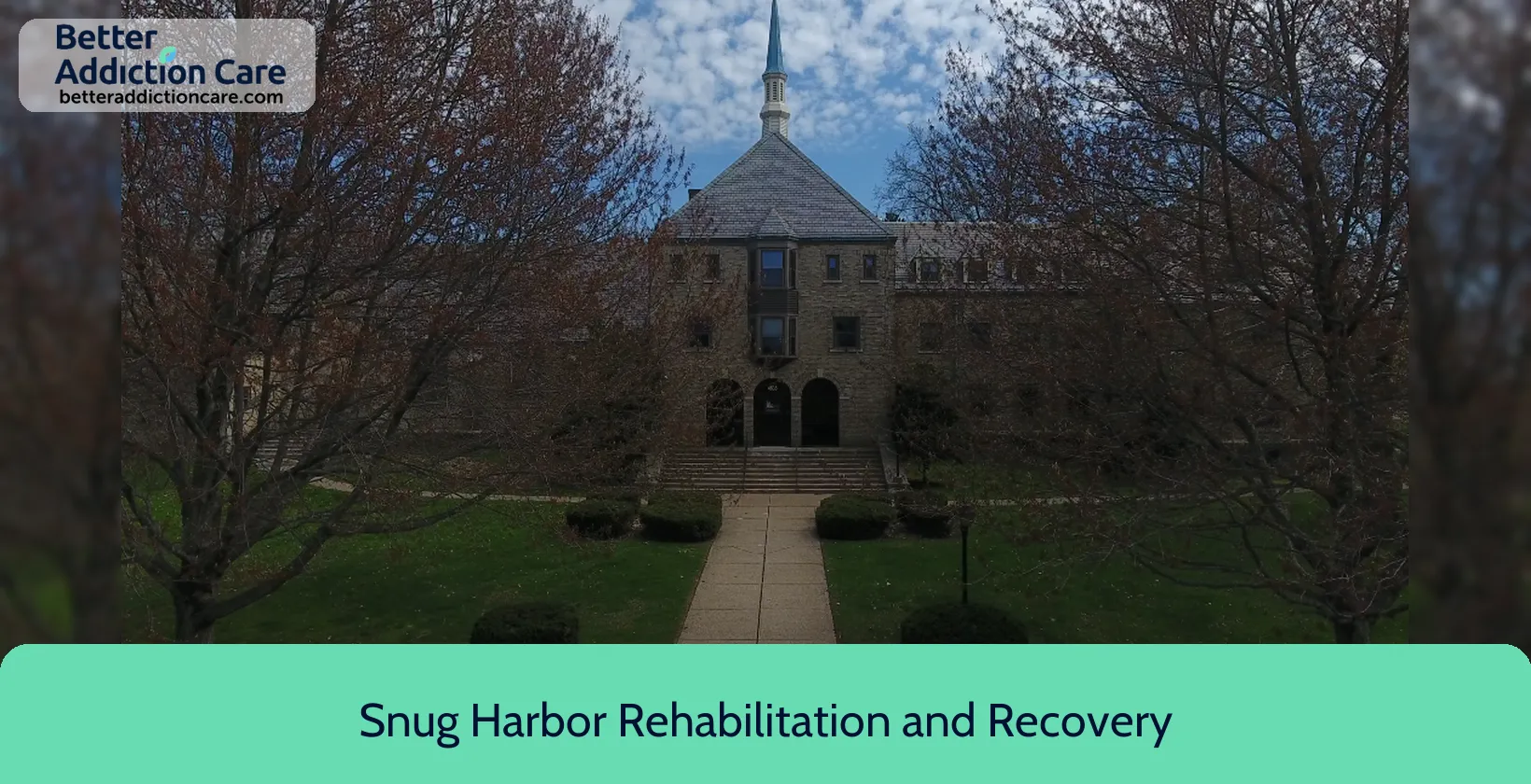Snug Harbor Rehabilitation and Recovery
Overview
Snug Harbor Rehabilitation and Recovery is an accredited substance abuse treatment center that provides inpatient detoxification, for men from 18+ years of age. As part of their special programs, Snug Harbor Rehabilitation and Recovery treats clients with co-occurring mental and substance use disorders, criminal justice (other than dui/dwi)/forensic clients, and clients with co-occurring pain and substance use disorders. To help patients achieve sobriety, Snug Harbor Rehabilitation and Recovery provides treats alcohol detoxification, benzodiazepines detoxification, and cocaine detoxification.. Afterward, patients receive cognitive behavioral therapy, telemedicine/telehealth therapy, and substance use disorder counseling during treatment. Snug Harbor Rehabilitation and Recovery is located in Erie, Pennsylvania, providing treatment for people in Erie County, accepting cash or self-payment, medicaid, and private health insurance.
Snug Harbor Rehabilitation and Recovery at a Glance
Payment Options
- Cash or self-payment
- Medicaid
- Private health insurance
Assessments
- Screening for tobacco use
- Comprehensive substance use assessment
- Outreach to persons in the community
- Screening for mental disorders
- Screening for substance use
Age Groups
- Young adults
- Adults
Ancillary Services
- Case management service
- Integrated primary care services
- Suicide prevention services
- Mental health services
- Social skills development
Highlights About Snug Harbor Rehabilitation and Recovery
7.56/10
With an overall rating of 7.56/10, this facility has following balanced range of services. Alcohol Rehabilitation: 8.00/10, Drug Rehab and Detox: 8.77/10, Insurance and Payments: 6.00/10, Treatment Options: 7.46/10.-
Drug Rehab and Detox 8.77
-
Alcohol Rehabilitation 8.00
-
Treatment Options 7.46
-
Insurance and Payments 6.00
Accreditations
State department of health:

Government agencies issue State Licenses, granting rehabilitation organizations permission to operate their businesses lawfully within specific geographic regions. The specific licenses needed for legal operation are typically determined by the type of rehabilitation program offered by the facility and its physical location.
Treatment At Snug Harbor Rehabilitation and Recovery
Treatment Conditions
- Alcoholism
- Mental health treatment
- Substance use treatment
- Co-occurring Disorders
Care Levels
- Hospital inpatient treatment
- Long-term residential
- Residential detoxification
- Aftercare
Treatment Modalities
- Cognitive behavioral therapy
- Telemedicine/telehealth therapy
- Substance use disorder counseling
- Trauma-related counseling
- Smoking/vaping/tobacco cessation counseling
Ancillary Services
Additional Services
- Pharmacotherapies administered during treatment
- Mentoring/peer support
- Breathalyzer or blood alcohol testing
Special Programs
- Clients with co-occurring mental and substance use disorders
- Criminal justice (other than DUI/DWI)/Forensic clients
- Clients with co-occurring pain and substance use disorders
- Clients who have experienced trauma
Get Help Now
Common Questions About Snug Harbor Rehabilitation and Recovery
Contact Information
Snug Harbor Rehabilitation and Recovery Reviews
Staff truly cares about the clients
Other Facilities in Erie

6.62

7.46

7.08

7.28

6.56

6.96

6.74

7.25
DISCLAIMER: The facility name, logo and brand are the property and registered trademarks of Pyramid Healthcare - Erie Outpatient, and are being used for identification and informational purposes only. Use of these names, logos and brands shall not imply endorsement. BetterAddictionCare.com is not affiliated with or sponsored by Pyramid Healthcare - Erie Outpatient.

